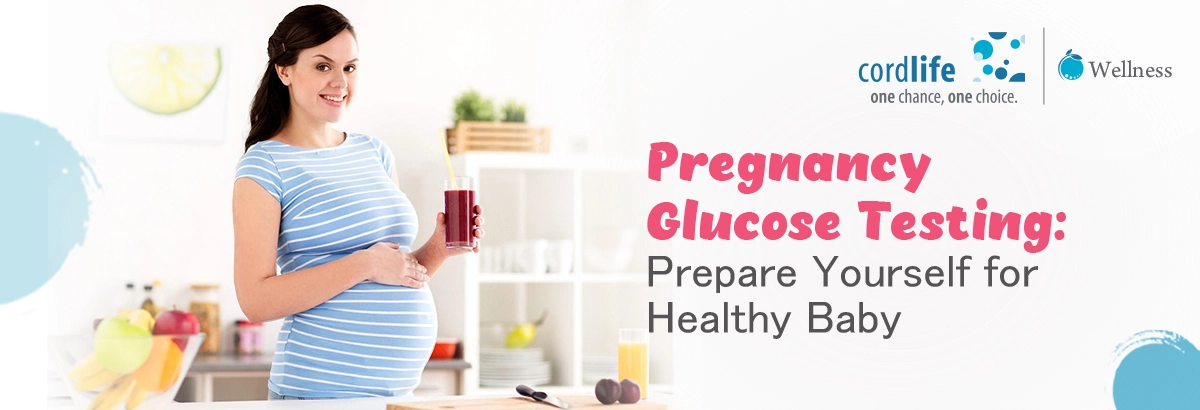Table of Contents
The nine months long journey comes with a set of challenges – morning sickness, tiredness, leg cramps, weight gain etc. Besides this, with the progression of your pregnancy, you might have to be careful of some of the health conditions – like high blood pressure, thyroid, gestational diabetes, etc. To see whether your pregnancy health is going in the right direction, you must visit the doctor at every stage of your pregnancy and get your health checked before your baby’s birth.
By the time you enter the 24th and 28th week of your pregnancy, there is a high chance that you might develop gestational diabetes and understand why you would require glucose testing during pregnancy.
Here’s a list of your questions answered for you
What is a Glucose Screening Test?
Gestational diabetes is common during pregnancy, especially during the 24th and 28th week of your pregnancy. You must keep your glucose level under control with a balanced diet, exercise, and medicine, to enjoy a healthy pregnancy and a healthy baby. If the glucose level is left unchecked, the placenta – is responsible for foetal development, which passes the all-essential nutrients, and oxygen also passes the sugar to the foetus. And, due to your overweight and gestational diabetes, there are chances that you can deliver a baby, whose size is larger than normal. You will suddenly find an onset of high blood pressure (hypertension) or pre-eclampsia. There could also be an indication of type 1 or type 2 diabetes during your pregnancy.
How Will You Prepare Yourself For a Glucose Test During Pregnancy?
Your preparation for the glucose test will depend completely upon the type of test your healthcare provider has suggested. You might have to undergo a two-step or one–step test. Before you undergo a pregnancy glucose test be on a perfectly normal diet. Now, if your healthcare provider prescribes you to undergo a two-step test, you would have to drink a sweet sugary drink an hour earlier. On the other hand, a step test is a two- or three-hours course. You might have to drink sweet glucose water two or three hours well in advance. Along with this, you might have to take a urine sample before undergoing the test. Carry just a little bit of snacks so that you can have them after the blood test is done. Be happy, positive, and cheerful. Elevated stress levels can keep your blood sugar level high.
How To Control High Gestational Diabetes?
If, after the blood test your reports show that your diabetes is on the higher side, that means your body is not using the insulin effectively due to the soaring pregnancy hormones. But there are a few smart strategies to deal with this health condition:
- Your doctor would also create a diet plan for you, in which the focus will only be on veggies, healthy fats, and fruits to control your health condition. Cut down on “refined” carbs and choose healthy carbs like whole grain bread and cereals.
- Take care of your pregnancy cravings with cheesy crackers, chickpeas, oatmeal soup, healthy smoothies, and other healthy snacks.
- Be active and try to gain a healthy weight. Remember, your body weight should not impact your pregnancy.
- Also, your healthcare provider may recommend taking a blood sugar monitor kit at home.
- Along with this, you will be given medicines to keep your gestational diabetes in check.
While controlling the higher levels of gestational diabetes, take care that you don’t naturally bring down or lower your blood sugar levels. As the symptoms of low blood sugar levels may be your confused feel, or feeling of sweating, light-headedness, and trembling.
Becoming a mother is one of the most important phases of your life. Let gestational diabetes not dampen your happiness during pregnancy. Follow your doctor’s advice meticulously. Also follow our blog page for more information on pregnancy, postpartum, baby care, and the benefits of cord blood banking.
